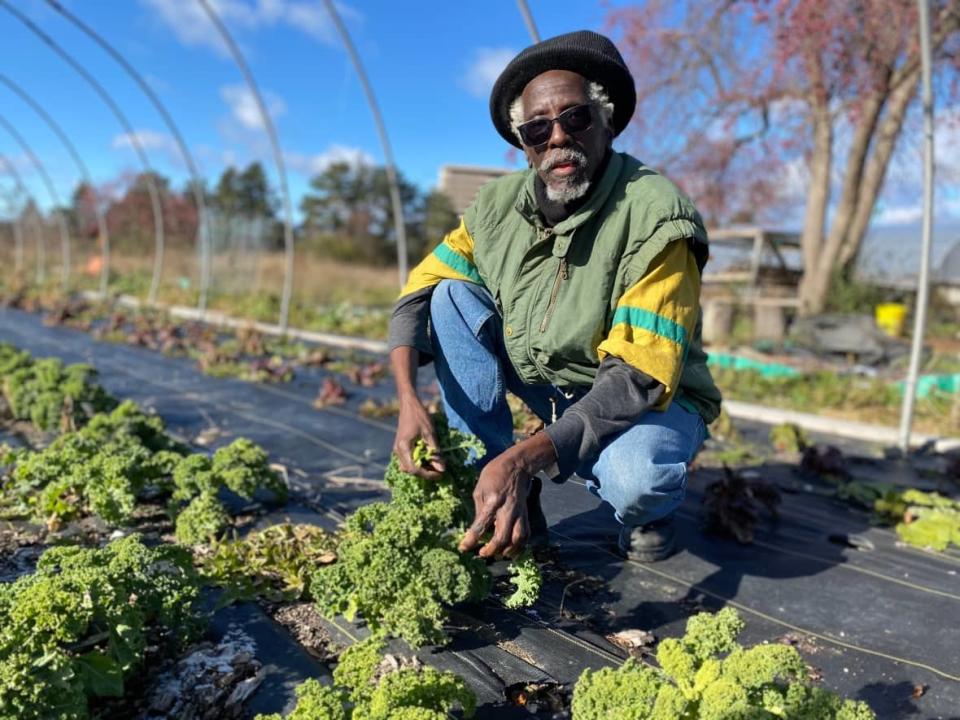Toronto's Black food sovereignty plan shows city's 'waking up' to inequalities, advocate says

Anan Lololi pulls leafy bunches of kale from the cold November ground at the Ujamaa Farm in North York.
"To make some kale juice," the executive director of Afri-Can FoodBasket suggests, moving on to rows of vegetables used in the Caribbean dish callaloo.
"We put this in the food basket because we want to make sure they get the chance to eat some healthy, organic food," Lololi said.
The non-profit has been campaigning for food justice for Black Torontonians since the 1990s and Lololi began running the urban farm in 2002. It's a way to build up Black food sovereignty in Toronto — a concept rooted in people's right to have access to healthy food that's traditional to their cultures.
Nearly 20 years later, Toronto seems to finally be "waking up" to racism and food insecurity in the Black community, he said.
City council recently passed Canada's first Black Food Sovereignty Plan. The main objectives are to develop new food security initiatives led by the Black community, support and fund existing programs and restructure the city's own strategies. It will mean more access to green space for urban farming, Black food hubs, cultural markets and community nutrition programs in the coming years.
"It's one of the best things that's happened to us in a long time," Lololi said.
Black families disproportionately food insecure
Black families are 3.5 times more likely to be food insecure compared to white families, according to the City of Toronto. And 36.6 per cent of Black children are living in food insecure households.
Deputy Mayor Michael Thompson said he envisions the plan will empower Black communities to expand urban farming, become more entrepreneurial and invest in businesses that produce affordable, nutritious food.
"When we starve a mind, we starve a soul, we starve our body, we find the level of inequality increases so greatly," he said.
"If we are able to combat and address this problem through the utilization of food, then we are responding to the need that exist."
Paul Bailey, executive director of the Black Health Alliance, said one of the ways anti-Black racism manifests itself is as disproportionate food insecurity, with people not being able to afford healthy food regularly.
"What we know is food security and access to good healthy food is crucial to health and wellbeing," Bailey said. "It's the thing that allows children to focus in school. It's the thing that allows us to control things like diabetes and hypertension."
He said while the plan is comprehensive, it's missing urgency. For example, the city will begin planning specifics next year. The final goal for Black communities to be self-sufficient in food sovereignty, including owning assets and institutions, won't be met until 2026.
"What we know on the ground is it's starting to reach a crisis point," Bailey said.
"We have to be ready to respond."
For more stories about the experiences of Black Canadians — from anti-Black racism to success stories within the Black community — check out Being Black in Canada, a CBC project Black Canadians can be proud of. You can read more stories here.


